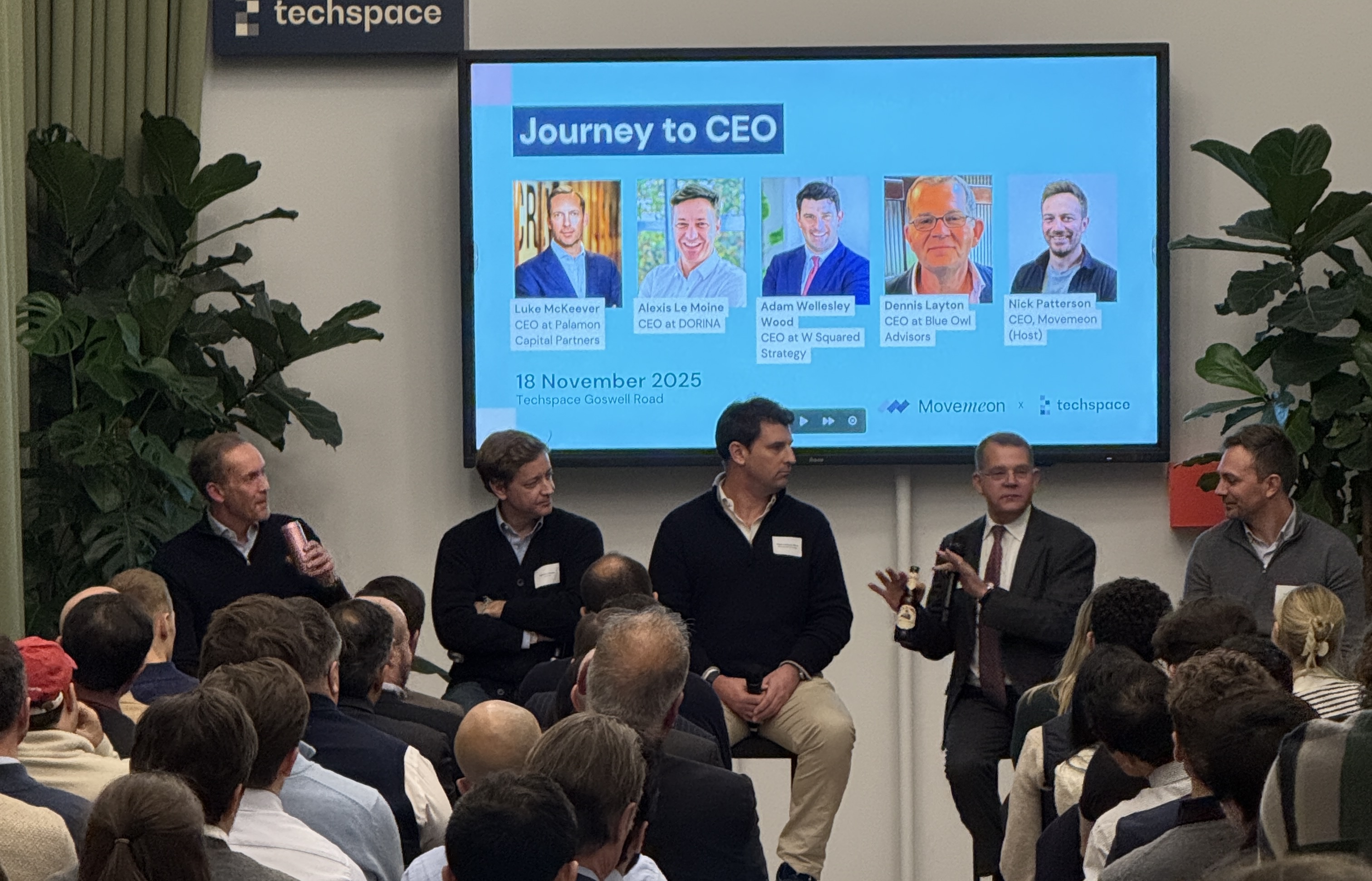The dos and donts of scaling a start-up: CarWow

Table des matières
Balises
Abonnez-vous à notre newsletter
Founding or joining a startup / scaleup is a very common desire for Movemeon users. At our networking event at the Carwow HQ, James Hind, (Carwow Founder), chatted candidly about the company’s impressive growth journey.James shared his learnings with the room of fellow founders/start-up CXOs (most of whom were at a slightly earlier stage in the journey to becoming a successful scale-up) and also movemeon members keen to make the move into startups /scaleups.This was followed by a lively Q&A and discussion – with some interesting insights surfacing. What resounded most strongly around the room was that it’s very easy, when growth really starts to take off, to take the path of least resistance in recruitment. The bigger a company becomes, the more a founder needs to be able to place trust in their employees to execute well without being micro-managed. It’s therefore crucial that the right people are put in place, even if the time commitment in finding these people can be initially painful.THE DO’S AND DON’TS OF SCALING A START-UP:Do: give your management team and the wider company space to make mistakes. It can be very frustrating to watch poor decisions being made, but without that trust you will never be able to see positive innovation and development either; worse, you’ll quickly become a bottleneck and risk slowing down your growth. If someone repeatedly makes poor decisions, this is a good signal that they might not be the right person for the job.Don’t: promote high-performing early employees before they are ready to take on management responsibilities, especially if you do not have an adequate development plan in place. It’s also important not to throw heavyweight job titles around too early. An early joiner might not have the skills to be a COO when the company has grown 5X, and the clearer you can be in communicating what necessary structures might look like as the company changes, the easier it will be to manage the inevitable growing pains that will occur when that takes place.Do: have an interview framework in place, to avoid inconsistent hiring principles and the risk of too much homogeneity in new recruits.Don’t: Underestimate the time it takes to hire. Try to get ahead of the curve, without losing the rigour in your hiring decisions (the wrong decisions take three times as long to fix, if not longer). That being said, when you’re in hyper-growth, a certain degree of chaos does just go with the territory!Do: start thinking about a training and development ecosystem before you really need it. This is not just about training people how to do their job and what is expected of them but, crucially, about ensuring they have a clear understanding of what the company does, how the business fits together, and what the company vision is. James suggested hiring a People person once the headcount starts to climb above thirty.Do: make good use of probation periods, and be prepared to let go of employees who aren’t performing (or who aren’t a good fit for their role or the company’s mission). In the UK, there are no laws against letting someone go within their first two years of employment, for whatever reason (provided you are not discriminatory). It can feel painful, but it’s also better for employees whose motivations are not aligned with the company’s to apply their efforts somewhere that’s a better fit for them.Do: find yourself a support network (without vested interests). This can be friends and family, but the best advice and support is very likely to come from fellow founders, particularly if they’ve recently been through what you’re going through. No matter the industry, the vast majority of problems you faced will have been faced by every other start-up to has grown through where you are now.This final point was made clear by the energy in the room. It was an overwhelmingly positive reminder that nothing is as useful for a founder in the early stages of growing a business than getting together with others who are going through or have recently gone through what you are experiencing.If you’re interested in startup / scaleup opportunities and events, we can help. Joining the movemeon community (it’s free) gives you daily access to opportunities it’s impossible to discover elsewhere & member only event invitations.
Where Talent Meets Opportunity
Our exclusive network use us to find job that fit their skills, and thousands of Employers trust us to hire exceptional talent. Choose the path that matches your goals - start exploring or start hiring.
Nos derniers articles
Nous publions régulièrement des articles actualisés pour vous tenir au courant de l'actualité du marché et de notre travail.
.png)
A record quarter for Private Equity deals sees a sharp hardening in the hiring market
Talent supply tightens as PE demand surges: Inside Q4’s hardest hiring market in two years, where Private Equity accelerates, scale-ups hold steady, and Large Enterprises struggle to attract strategy and transformation talent.

What we can all learn from Private Equity about talent - McKinsey, HBR and our analysis
Private Equity has become one of the most influential forces in business, outperforming public companies through disciplined value creation and exceptional talent strategy. This article explains how PE achieves its results and why demand for ex-consulting talent is rising across the industry.
Joignez-vous à notre offre exclusive communauté mondiale
Recevez des données et des informations exclusives sur les salaires, l'analyse comparative, et des entretiens avec l'industrie pour bâtir une carrière qui vous convient.
Créez un compte dès aujourd'hui et commencez à rechercher des rôles dans moins de cinq minutes.





